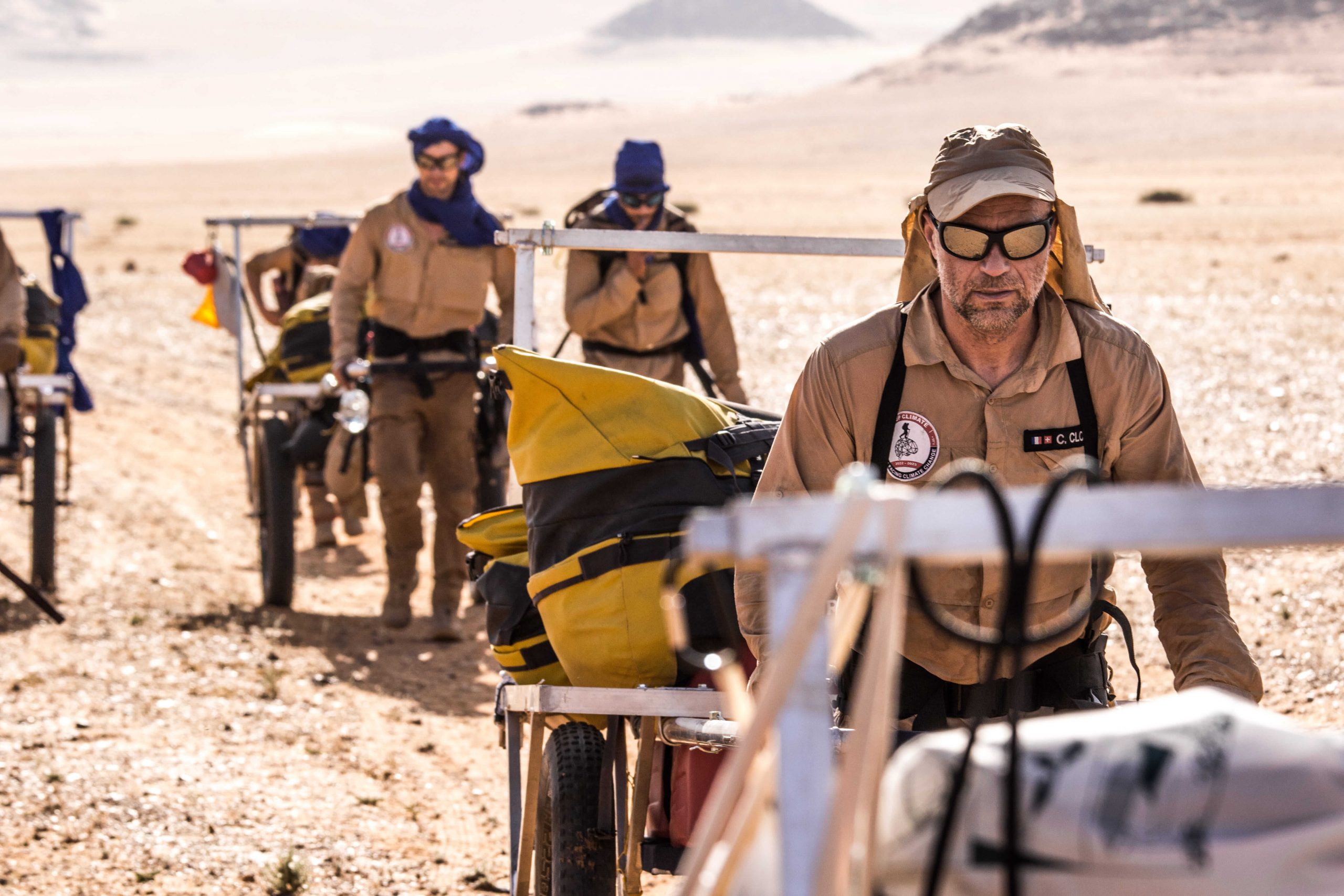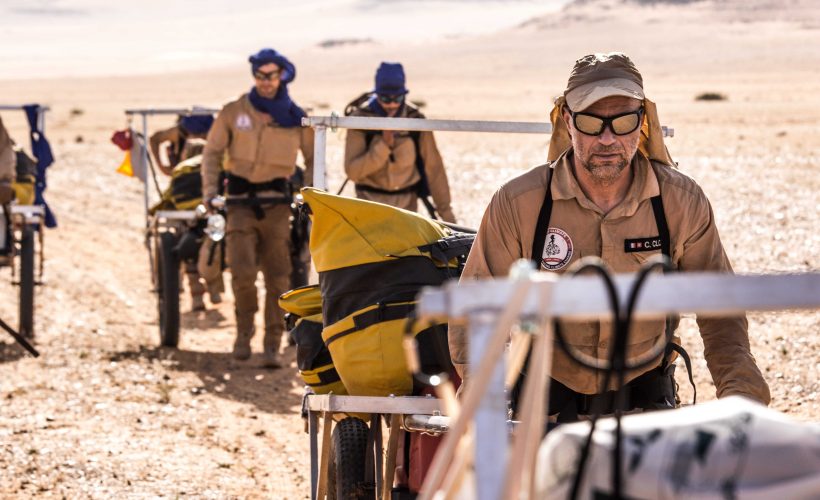Tech & Business
5.24.2023
‘Climatonauts’ put to the test in the Saudi desert

20 scientists – 10 men and 10 women – have volunteered to take part in a series of extraordinary experiments aimed at understanding human abilities to cope with new and changing climates and living conditions due to global warming. In the last and perhaps most extreme experiment, they cross the vast and arid desert of Saudi Arabia. Immersion with these climate adventurers.
In the Nefud, one of the hottest deserts in the world, armed only with a compass and a satellite map, a team of researchers must find their way. 40 days without assistance, towing their own equipment carts. Clothes, food, water, medicine, and, of course, the tools needed for their scientific experiments. This would test even the most seasoned adventurers, which they aren’t…

The Deep Climate initiative has set itself the mission of “going to understand the climates of our future where they already exist”. Led by Franco-Swiss explorer Christian Clot, a team of some 40 scientists from 15 institutes and organizations (CNES, IRBA, ONERA, Kaust University, etc.), is exposing themselves to the most extreme climatic conditions that the planet Earth has to offer mankind, from the polar cold of the ice pack to the stifling humidity of the Amazon jungle, or the arid heat of the desert. Each crossing lasts 40 days, and aims to follow strict scientific protocols, sometimes on a daily basis, with the ultimate goal of learning enough to help humans live better in tomorrow’s changing climates.
Voir cette publication sur Instagram
Saudi Arabia, the playground of climate scientists
This final test, after those already carried out in the jungle at 100% humidity in French Guiana in December and January, and the extreme cold in Lapland just over a month ago, sees them evolve in the middle of the dunes of the King Salman reserve in western Saudi Arabia, where the temperature flirts with 50°C in the shades, if you’re lucky enough to find any, and where humidity is almost non-existent.
For the reserve’s director, Saudi Fahad Mohammed Alshowaier, the operation is also an opportunity to raise the profile of a region the country wants to advertise for local and international tourism. As he points out, the adventurers are likely to come across Arabian wolves as well as rare local gazelles.
But what interests the researchers most are the physiological answers they will be able to provide to this challenge, and the conclusions that can be drawn for the future of the human race…
popular

